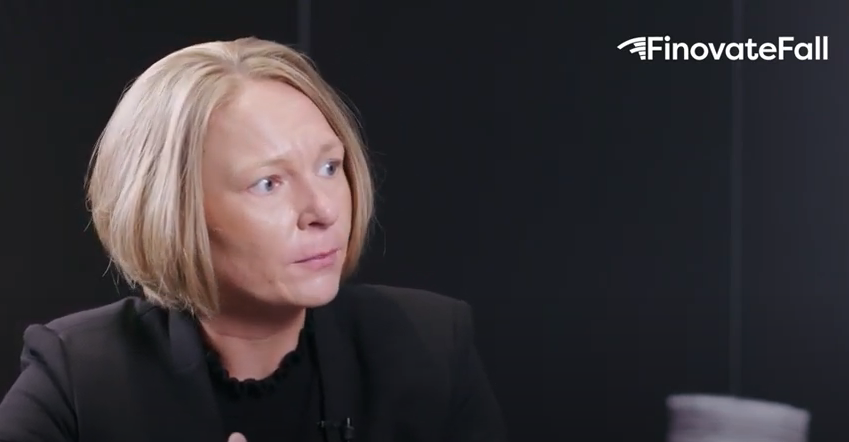
Commonwealth Bank of Australia Launches Tech Hub in Brisbane
Over the summer, Australia’s Commonwealth Bank (CBA) unveiled its latest technology hub in Melbourne. This week, we learned that the financial institution’s hub-building game is still strong, with word that that CBA has established another technology hub, this time in the city of Brisbane.
The goal of the new hub, located in Brisbane’s central business district, is to help build the technology community in Queensland writ large. The bank is collaborating with The University of Queensland (UQ), Queensland University of Technology (QUT), and TAFE Queensland to enable students and graduates to participate in CBA’s Tech Associates and Graduate programs. The new hub will also create job opportunities for technology professionals including engineers, cyber specialists, and data scientists.
Commonwealth Bank of Australia Chief Information Officer Brendan Hopper pointed to COVID era trends as one reason why CBA has become especially interested in Queensland. “The COVID pandemic saw many of our technology professionals choose to relocate to Queensland to pursue a change of lifestyle,” Hopper explained. “By having the tech hub in Brisbane, our people based there will still have access to major technology employers like DBA and can make an impact in their work without having to relocate interstate.”
The technology hub in Brisbane is the third such opportunity CBA has launched this year. In February, the bank opened a technology hub in Adelaide.
The Commonwealth Bank of Australia is a multi-national institution with operations in Australia, New Zealand, the U.S., and the U.K. The financial institution, one of the four biggest banks in Australia (along with National Australia Bank (NAB), ANZ, and Westpac) was founded in 1911 by the Australian government and privatized in 1996. CBA had more than one trillion in total assets as of 2020.
ANZ’s Digital Bank Reaches 100,000 Customer Milestone
Speaking of Australia’s big banks, ANZ announced this week that its digital bank, ANZ Plus, has reached 100,000 customers, and more than two billion in deposits.
“New features, better security, along with a suite of tools and coaches to help people save more, combined with competitive rates are driving more people to ANZ Plus than ever before,” ANZ Managing Director of Design and Delivery Peter Dalton said. “(It) is the fastest growing new digital bank in Australia.”
Launched in March, ANZ Plus offers accountholders an everyday account that tracks spending, and a savings account with features to help users reach their financial goals. ANZ Plus offers 3.5% interest on savings for ANZ Save balances under $250,000; and charges neither monthly account fees nor withdrawal fees at major Australian bank ATMs. Additionally, ANZ Plus customers can schedule one-on-one sessions with a financial coach to help them uncover ways that they can enhance their financial wellness, including tips on spending less and saving more.
“We are continually adding new features to improve customer experience,” Dalton said, “and have begun piloting our digital home loan product with staff.”
Other features available on ANZ Plus include biometric logins for iOS users, as well as dynamic CVV, BPAY, pay to PayID, and the ability to join with an international passport.
ANZ – which stands for the Australia and New Zealand Banking Group Ltd – is the second biggest bank in Australia by assets. Headquartered in Melbourne, Victoria, ANZ was founded in 1970 as part of the largest bank merger in Australian history at the time. In the decades since then, ANZ has grown into a multinational banking and financial services entity with more than 51,000 workers, nine million customers worldwide, and more than one trillion in assets.
Australian Regulators Take AMEX to Court
While Australian banks are expanding opportunities for technology professionals and creating new resources for financial technology users, Australian regulators are cracking down on what they believe represents bad behavior on the part of one of financial services’ biggest players.
We learned this week that the Australia Securities and Investments Commission (ASIC) is alleging that a pair of credit cards issued by the local unit of American Express and co-branded with retailer David Jones did not provide adequate explanations about how the cards actually work.
Specifically, regulators have filed a lawsuit claiming that customers were confused about whether they had applied for a loyalty card or a credit card. Further, the lawsuit charges that American Express did not limit distribution to customers that were exclusively interested in cards that enabled them to earn points and receive other benefits. Regulators assert that AMEX was aware of the issue as early as February, but failed to act until July.
“Product providers must monitor and review whether consumers are receiving products consistent with their needs and cannot bring a ‘set and forget mindset’ to product governance,” ASIC Deputy Chair Sarah Court said in a statement. “It is critical that providers respond to poor outcomes they identify by making changes.”
As of this time, neither AMEX nor the company that owns the David Jones department store chain have commented on the lawsuit.
Here is our look at fintech innovation around the world.
Asia-Pacific
- Tencent’s financial division, Tencent Financial Technology unveiled a new cross-border payments business, Tenpay Global.
- Tonga Development Bank partnered with Europe-based payments platform BPC.
- Al Rajhi Bank Malaysia launched a new digital offering, Rize.
Sub-Saharan Africa
- South African fintech Ukheshe secured new funding from DPI and Fireball Capital.
- In a bid to boost digital payments, the Central Bank of Nigeria put a limit of $45 on daily ATM withdrawals.
- Finclusion, a credit-based neobank based in the Republic of Mauritius, raised $2 million in equity financing and rebranded officially to “Fin.”
Central and Eastern Europe
- Ukraine will be the first country to benefit from the new cross-border payments partnership forged between Mastercard and Paysend.
- Deutsche Bank announced a partnership with NVIDIA to encourage the use of AI and machine learning in financial services.
- German corporate financing platform FinCompare partnered with ING Germany.
Middle East and Northern Africa
- A pair of Egypt-based fintechs – consumer financing platform One Finance and BNPL provider ADVA One – announced a partnership this week.
- Saudi Araban fintech Tweeq secured an e-money license from the kingdom’s central bank, SAMA.
- bondIT, a fixed income investment technology company based in Israel and New York, raised $14 million in funding.
Central and Southern Asia
- U.K.-based financial services platform Tide went live in India with its app and business account.
- The State Bank of Pakistan announced that it is drafting legislation ahead of a planned CBDC launch in 2025.
- SBM Bank India reported that it is pursuing funding to support the development of its BaaS platform.
Latin America and the Caribbean
- Latin American cryptocurrency platform Bitso announced a partnership with remittance company Félix Pago to enable WhatsApp-based crypto-powered payments.
- Brazil-based digital bank C6 partnered with Thought Machine for its core banking technology.
- Argentine fintch Ualá to offer personal loans to customers in Mexico courtesy of a partnership with ABC Capital.




















